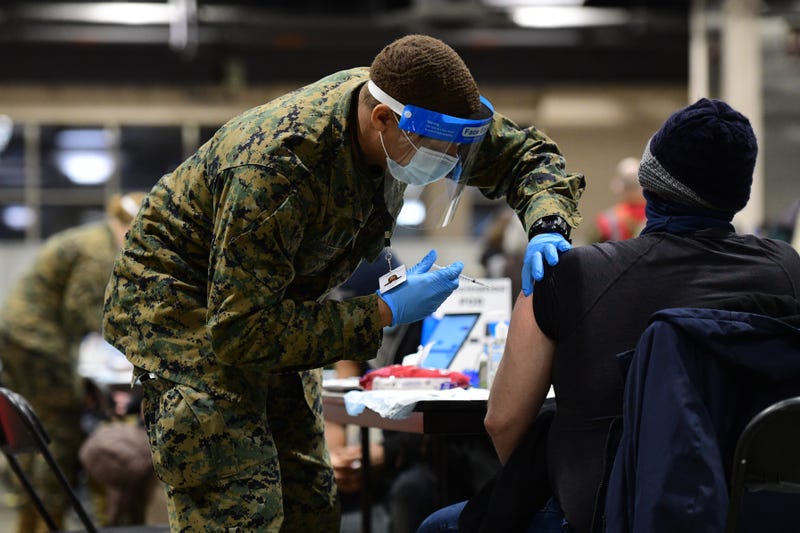
PHILADELPHIA (KYW Newsradio) — There has been a lot of recent discussion about when we will see the FDA give full approval, and not just the current emergency-level approval, to some of the COVID-19 vaccines.
This begs the question, what is the difference between the emergency use authorization under which the vaccines have already been distributed, and full approval?
Listen to your favorite News/Talk station now on Audacy
"FDA evaluates data on a product - in this case, vaccines - and authorizes its emergency use for a particular period of time to a very select patient group," Dr. Charles B. Cairns, the Walter H. and Leonore Annenberg Dean and Senior Vice President of Medical Affairs at Drexel University's College of Medicine, told KYW Newsradio In Depth's Matt Leon.
"Full FDA approval means that it's undergone all the regulatory requirements before FDA approval, which means not only understanding how something was manufactured and where it was done and all the processes behind it, but of course, looking at all those data that is necessary to show that something is safe and effective."
Dr. Cairns said that there are specific regulatory deadlines involved in achieving full approval for a vaccine. Those deadlines involve studying data from the emergency vaccine distribution.
That is a lot of data, considering more than a billion vials of the vaccine have been administered.
"There have been millions and millions of people now who received this vaccine, and so the data needed to assess things like efficacy or how well it works against the virus infections, and they've even extended it to things like keeping people out of the hospital or keeping people from dying," said Dr. Cairns.
"So that process, though, for formal...full FDA approval, does start with a submission of all that data in a format that's consistent with the regulations. That allows for full approval to be assessed."
He described how data began coming in mid-May for the Pfizer vacine, but with additional data requests that have come in, a possible approval deadline for the Pfizer vaccine could come in January 2022, and the Moderna vaccine's deadline may be around a month afterward.
LISTEN on the Audacy App
Sign Up and Follow Audacy
Facebook | Twitter | Instagram
